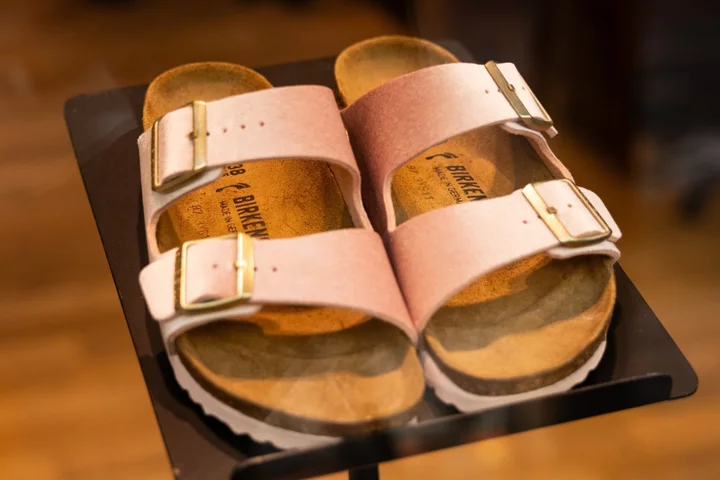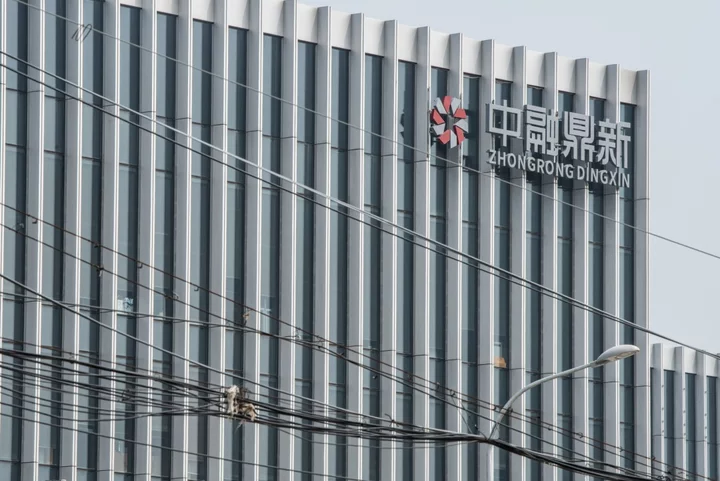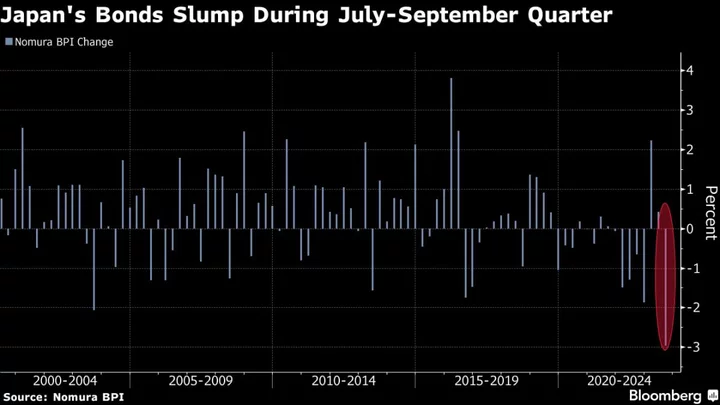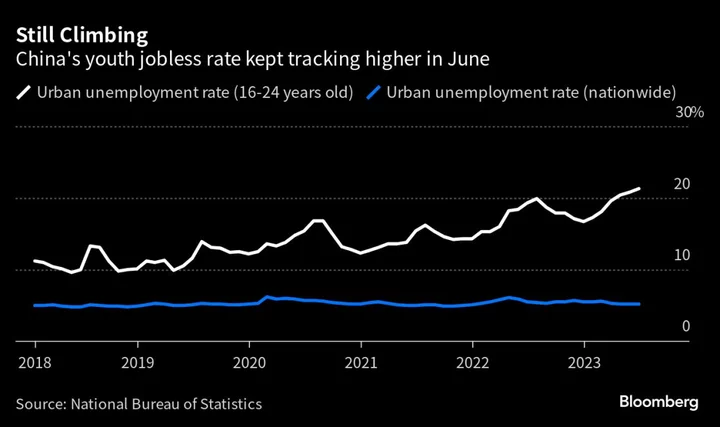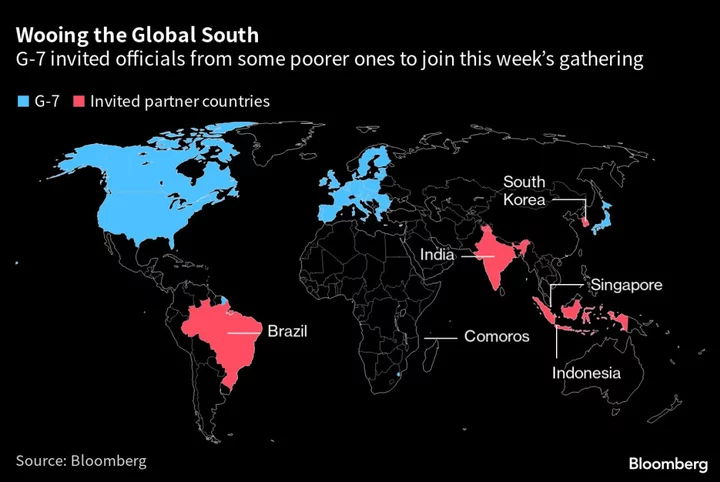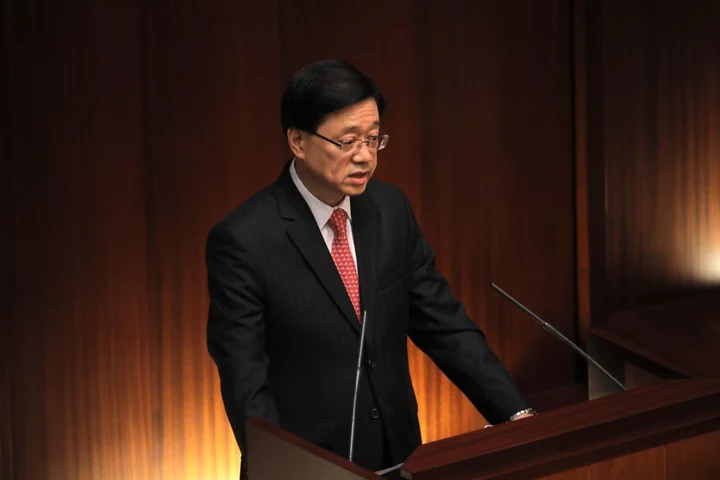Birkenstock Holding Plc, the 249-year-old footwear brand, stumbled onto Wall Street last week in a debut that could quash the fledgling rebound of initial public offerings.
The maker of cork-soled sandals closed down 12.6% on Wednesday for the worst first-day showing in a US IPO of $1 billion or more in more than two years. Not since AppLovin Corp.’s April 2021 offering, with its 18.5% day-one loss, has there been a worse such debut.
Bad market timing appears to have counteracted the Neustadt, Germany-based company’s conservative pricing strategy and its reliance on anchor investors. It also overshadowed a recent sales boost from the Hollywood blockbuster Barbie where Margot Robbie trades in her heels for a light pink pair.
The IPO was “definitely not the debut that Birkenstock was hoping for,” said Nicholas Smith, senior research analyst at Renaissance Capital. He added that the current market is more discerning and risk-averse, especially in the consumer sector.
Timing can sometimes be everything when it comes to an IPO. Birkenstock’s investor roadshow was bookended by a potential US government shutdown, public holidays in Germany and the US, delayed listings in Europe and an outbreak of war in Israel.
These factors, combined with disappointing earnings from Birkenstock’s indirect backer LVMH, just hours before the new stock was set to open trading in New York, hurt its performance. LVMH, and the family that controls it, is a partner of Birkenstock’s owner, L Catterton.
Bernard Arnault’s conglomerate, which owns labels such as Louis Vuitton and Christian Dior, reported a 9% rise in third quarter revenue, below the 11.9% analysts were expecting. It said consumers were spending less, especially in Europe, following the boom years post-pandemic. The results dragged down other luxury stocks.
That cast a shadow over how some investors were viewing Birkenstock after books closed at noon Tuesday, one of the people said, and may have weighed on its trading debut. With markets already rattled by the Middle East, some larger accounts were reconsidering their appetite for the sector, they said.
A representative for Birkenstock declined to comment.
IPOs Pulled
Global stock market volatility earlier in October had already started to shake confidence even before Birkenstock’s IPO, with Triton earlier postponing its planned share sale for military gearbox maker Renk AG. A few hours before Birkenstock began trading, French software company Planisware postponed its IPO on Euronext Paris, citing challenging market conditions.
Birkenstock’s order book was covered more than eight times at the top of the range on Tuesday, said the people, who asked not to be identified discussing confidential information. At the pricing meeting Tuesday at the Plaza hotel on New York’s Fifth Avenue, the company and its private equity owner L Catterton decided to price at $46, just below the midpoint of the $44 to $49 marketed range, with the aim of ensuring a first day ‘pop,’ the people said. The offering raised $1.48 billion.
Even at $46, the price might have been too rich compared to peers. That price valued the company at 4.9 times forward price to sales, while its footwear peer group trades at just two times, according to Bloomberg Intelligence analyst Abigail Gilmartin.
Like the others in the fall IPO class, Birkenstock had lined up anchor investors as part of a strategy to stabilize the offering by assuring demand.
But anchor investors haven’t made the IPOs of late a sure victory. Instacart also tried that strategy and is still trading 15% below its IPO price. It could be because these anchor investors don’t need to necessarily hold onto their shares, according to Josef Schuster, founder and chief executive officer of IPOX Schuster.
“We’ve also seen some of the cornerstone investment is not subject to any lock up requirements, so the allocation does not by default reduce liquidity,” Schuster said.
There’s also some debate about Birkenstock’s preference to allocate 90% of its IPO shares to long-only investors, which is more than usual. The company and L Catterton insisted from the outset, even before the roadshow started, that they wanted a book full of strong long-only investors and weren’t interested in “short-term” money, meaning hedge funds. They took very few meetings with hedge funds or alternative asset managers, the people said.
That decision may end up creating downward pressure on the stock as demand by the long-only had been met in the IPO process and hence they weren’t snapping up shares in the open market, they added.
Rubrik, Turo
Shares fell further on Thursday and again on Friday, extending the decline from the IPO price to almost 21%. That left the company with a market value of about $6.8 billion.
The debut dud is already prompting other companies that had been targeting near-term listings to reconsider their timelines.
Those putting their IPO plans on a slower track include Microsoft Corp.-backed cloud and data security startup Rubrik Inc. and car-sharing business Turo Inc., according to people familiar with the matter. Rubrik and Turo’s IPO timings aren’t finalized and could still change.
Representatives for Rubrik and Turo didn’t respond to requests for comment.
--With assistance from Amy Or.
Author: Ryan Gould, Bailey Lipschultz and Swetha Gopinath

